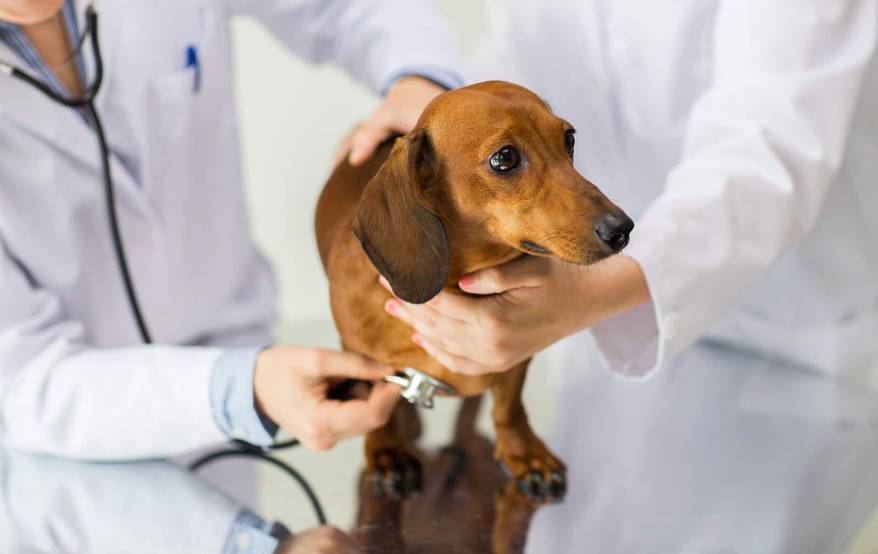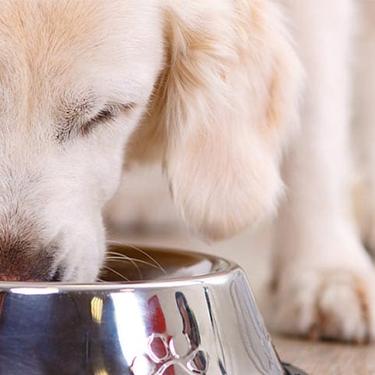
-
Find the right food for your pet
Take this quiz to see which food may be the best for your furry friend.
Find the right food for your pet
Take this quiz to see which food may be the best for your furry friend.
Featured products
 Adult 7+ Perfect Digestion Chicken, Whole Oats & Brown Rice Recipe Dog Food
Adult 7+ Perfect Digestion Chicken, Whole Oats & Brown Rice Recipe Dog FoodScience Diet's breakthrough nutrition supports ultimate digestive well-being & healthy microbiome for dogs age 7+
Shop Now Small & Mini Savory Stew with Chicken & Vegetables Dog Food
Small & Mini Savory Stew with Chicken & Vegetables Dog FoodA delicious complement to the nutrition of Science Diet Small & Mini 7+ dog food
Shop Now Adult Healthy Cuisine Roasted Chicken, Carrots & Spinach Stew Dog Food
Adult Healthy Cuisine Roasted Chicken, Carrots & Spinach Stew Dog FoodDelicious roasted chicken paired with tender vegetables in a succulent stew
Shop NowFeatured products
 Adult Savory Entrée Can Variety Pack Cat Food
Adult Savory Entrée Can Variety Pack Cat FoodPrecisely balanced nutrition with the delicious taste of savory minced chicken to help fuel the energy needs of cats during the prime of their life
Shop Now Adult 7+ Senior Vitality Chicken & Vegetable Stew Cat Food
Adult 7+ Senior Vitality Chicken & Vegetable Stew Cat FoodImproves Everyday Ability to Get Up & Go
Shop Now Adult 7+ Tender Tuna Dinner Cat Food
Adult 7+ Tender Tuna Dinner Cat FoodWith delicious chunks in a decadent gravy
Shop Now -
Dog
- Dog Tips & Articles
-
Health Category
- Weight
- Food & Environmental Sensitivities
- Urinary
- Digestive
- Joint
- Kidney
-
Life Stage
- Puppy Nutrition
- Adult Nutrition
- Senior Nutrition
Cat
- Cat Tips & Articles
-
Health Category
- Weight
- Skin & Food Sensitivities
- Urinary
- Digestive
- Kidney
-
Life Stage
- Kitten Nutrition
- Adult Nutrition
Featured articles
 Does My Pet Hate Me?
Does My Pet Hate Me?Learn tips for bonding with your pet if you've ever thought, 'My dog doesn't like me, or 'Why do I have a standoffish cat?'
Read More Do Dogs and Cats have Belly Buttons?
Do Dogs and Cats have Belly Buttons?Learn whether cats & dogs have belly buttons like humans, what the function is, and if there are any health concerns associated with it.
Read More Why Are Dogs and Cats So Cute?
Why Are Dogs and Cats So Cute?If waggy puppy dog tails and furry kitten yawns make you swoon, you're not alone. Why are cats so cute? And, dogs too! Let's find out!
Read More -


Did you know your dog can get the flu, too? Canine influenza is relatively new — the first strain was reported in 2004 in racing greyhounds and was spread from horses to dogs, according to the Centers for Disease Control and Prevention (CDC). A second strain developed in the United States in 2015 and is thought to have originated with birds. So far, dog flu has been reported in forty-six states. Only North Dakota, Nebraska, Alaska and Hawaii have had no reports of dog flu, reports Merck Animal Health.
A dog with the flu can feel as miserable as you when you're under the weather. Canine flu symptoms include sneezing, fever and discharge from your poor pooch's eyes or nose. Your dog might also develop a cough that could last as long as a month. While your dog can get very sick from the flu, the chances of death are low.
Fortunately, canines and humans cannot spread the flu to each other. Unfortunately, dogs can spread it among each other easily. The American Veterinary Medical Association (AVMA) recommends dogs that have the flu be isolated from other dogs for four weeks.



Tasty Tips
Dog Flu Treatment & Prevention: Vaccines for At-Risk Dogs
Vaccines are available that help protect against canine influenza strains. The vaccine works by preventing an infection in most cases or reducing the severity and duration of the illness, according to the AVMA.
Unlike a rabies and parvovirus vaccine, for instance, the vaccine against canine flu is considered a "lifestyle" or "non-core" vaccine. It's only recommended by the CDC in cases where dogs are socially active, meaning if they travel frequently, board with other dogs, attend dog shows or frequent dog parks.
The vaccination is recommended for dogs that are socially active because the virus is spread through direct contact, or through nasal secretions (which can happen when a dog is barking, coughing, or sneezing), and from contaminated surfaces (including food and water bowls and leashes). A person who is in contact with an infected dog may unintentionally expose another dog by spreading the virus through contact.
"Dogs that may benefit from canine influenza vaccination include those that receive the kennel cough (Bordetella/parainfluenza) vaccine, because the risk groups are similar," according to an AVMA report. Merck Animal Health, which created the USDA-approved vaccine Nobivac Canine Flu Bivalent, reports 25% of pet care facilities now require dogs to have the canine flu vaccine.
The Animal Hospital of North Asheville explains that the vaccine is administered in a series of two vaccinations given two to three weeks apart in the first year, and then requires an annual booster shot. It can be given to dogs 7 weeks of age and older.
Think your dog should get vaccinated against canine flu? Your first step is to consult your veterinarian to determine your dog's risk of exposure to the canine influenza virus and to determine if a vaccination against canine flu is the right choice for your four-legged family member. Also, with any vaccine, make sure to continue to monitor your dog after receiving the vaccine to ensure there are no adverse affects that should be reported to the vet.


Kara Murphy is a freelance writer and pet parent who lives in Erie, Pa. She has a goldendoodle named Maddie.
Related products
Related articles

Learn how today's wet dog food blends have gotten a face lift, and how you'll provide your dog the nutrition he needs in the form he loves.

Learn the the dangers of feeding your dog chocolate, which types are most dangerous, and what to do if you discover that they have consumed chocolate.

Learn about choosing the right dog food to help ensure your adult dog will receive the correct balance of nutrition.

Proper nutrition for your pregnant or nursing dog is vital to her and her puppy's health. Learn what you should do provide her with the proper nutrients.

Put your dog on a diet without them knowing
Our low calorie formula helps you control your dog's weight. It's packed with high-quality protein for building lean muscles, and made with purposeful ingredients for a flavorful, nutritious meal. Clinically proven antioxidants, Vitamin C+E, help promote a healthy immune system.
Put your dog on a diet without them knowing
Our low calorie formula helps you control your dog's weight. It's packed with high-quality protein for building lean muscles, and made with purposeful ingredients for a flavorful, nutritious meal. Clinically proven antioxidants, Vitamin C+E, help promote a healthy immune system.

